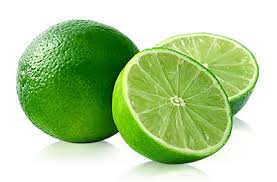In the Lime of Fire

If you’re in the United States and there’s a lime nearby, it’s almost certain that the little green citrus in question came from Mexico. The United States imports nearly all of its limes — 95 percent — from its neighbor to the south, and typically, supplies are stable and therefore, so are prices. In recent years, limes sold for about $20 for a thirty-eight-pound case (wholesale), according to a PBS Newshour report. However, in the early part of 2014, the prices spiked five-fold and remained there for a few months. In mid-May, prices restablized, and the price of limes fell back to their traditional levels.
In most cases, the lime-producing farmers would be cheering on the era of expensive limes and bemoaning the subsequent price crash. In this case, though, the opposite was true. The higher the price went, the more scared farmers became for their lives and livelihoods. When the price returned to normal, it was because something great had happened.
It meant the drug lords had gone away.
The lime wars started innocently enough. Toward the end of 2013, heavy rains in some parts of Mexico’s lime-producing regions damaged crops while bacteria invaded another region. (A person with an affinity for puns may point out that parts of Mexico had to deal with a particularly bad epidemic of lime disease.) Supply fell, demand stayed roughly the same, and the basic rules of economics kicked in, leading to a small but noticeable uptick in the price of limes. If you were one of the affected farmers, hopefully you had diversified your crops or had banked some money in case of bad times. On the other hand, if you had limes to sell, it was a good day, as you made a little more profit than usual.
If you were a drug cartel, you suddenly had access to a product you could import into the United States without risking incarceration or worse.
The cartel in question is the Templarios — the Knights Templar, in English — a criminal organization active in the Mexican state of Michoacán. The Templarios aren’t just drug smugglers — they’re more akin to the Mafia than anything else, with a history of kidnapping, counterfeiting, money laundering, arms trafficking, and murder. In many areas of Michoacán, there’s a good chance that any businessman you meet is paying protection money to the Templarios. For his sake, he probably should be.
Despite this criminal activity, Michoacán has experienced an agricultural boom over the past few years, and limes are one of the largest growth areas. Going into 2014, six contiguous towns in Michoacán are, collectively, responsible for about 20 percent of the limes produced nationwide. That many limes in such a small, easily managed area was too good for the Templarios to resist. According to the Washington Post, the drug-fueled cartel used its muscle to slow the production of limes while taking ownership of the citrus supply chain. The Templarios bought up lime farms, often extorting the previous owners to sell for cheap or face threat of violence, then drastically reduced output. Many other lime farms were de facto operated by the Templarios, and they cut production as well. For those farmers who were somehow outside the control of the Knights Templar, they had few places that would take their fruit — food packagers were understandably wary, given the possible (if not probable) repercussions.
Ultimately, many in Michoacán started to join militias and took up arms against the Templarios. Mexico’s federal government also sent in police, and the lime cartel began to crumble. NPR reported that “several top leaders [of the Templarios were] killed or arrested” and the limes began to flow freely once again.
Bonus fact: According to a 2002 article in the Washington Post, escaping from jail isn’t illegal in Mexico. Yes, if you’re caught, you still have to go back and serve out your jail term—but authorities don’t tack on any additional time because of your attempt to gain some freedom a bit early. Juventino Victor Castro y Castro, then one of Mexico’s Supreme Court justices, explained to the press that “the basic desire for freedom is implicit inside every man, so trying to escape cannot be considered a crime.”
From the Archives: Don’t Forget the Lime: It’s about scurvy.
Related: Five pounds of limes.
